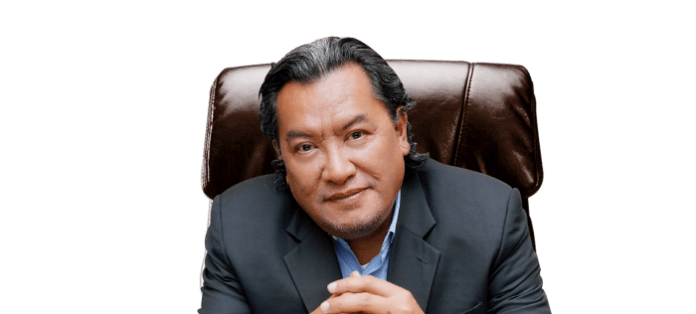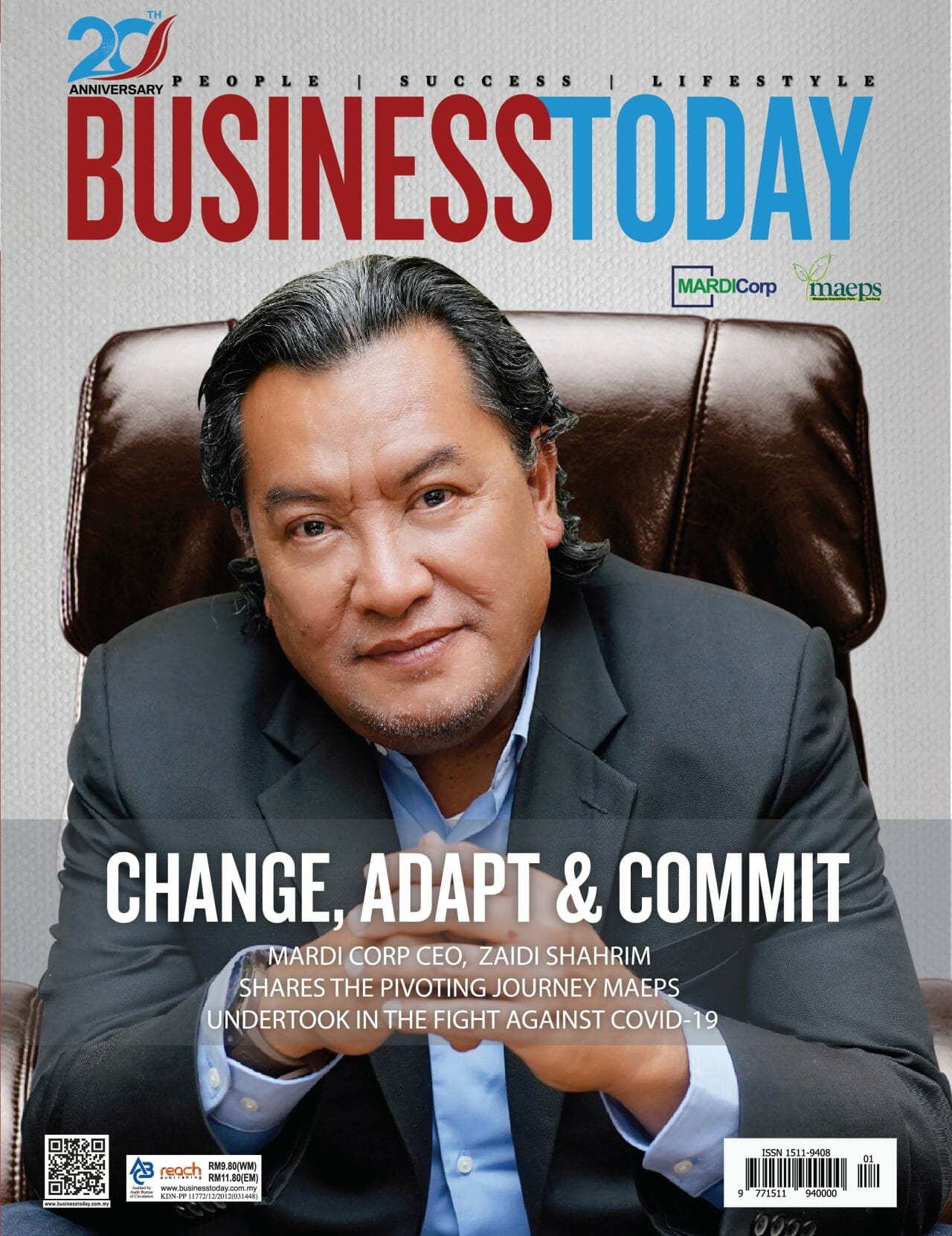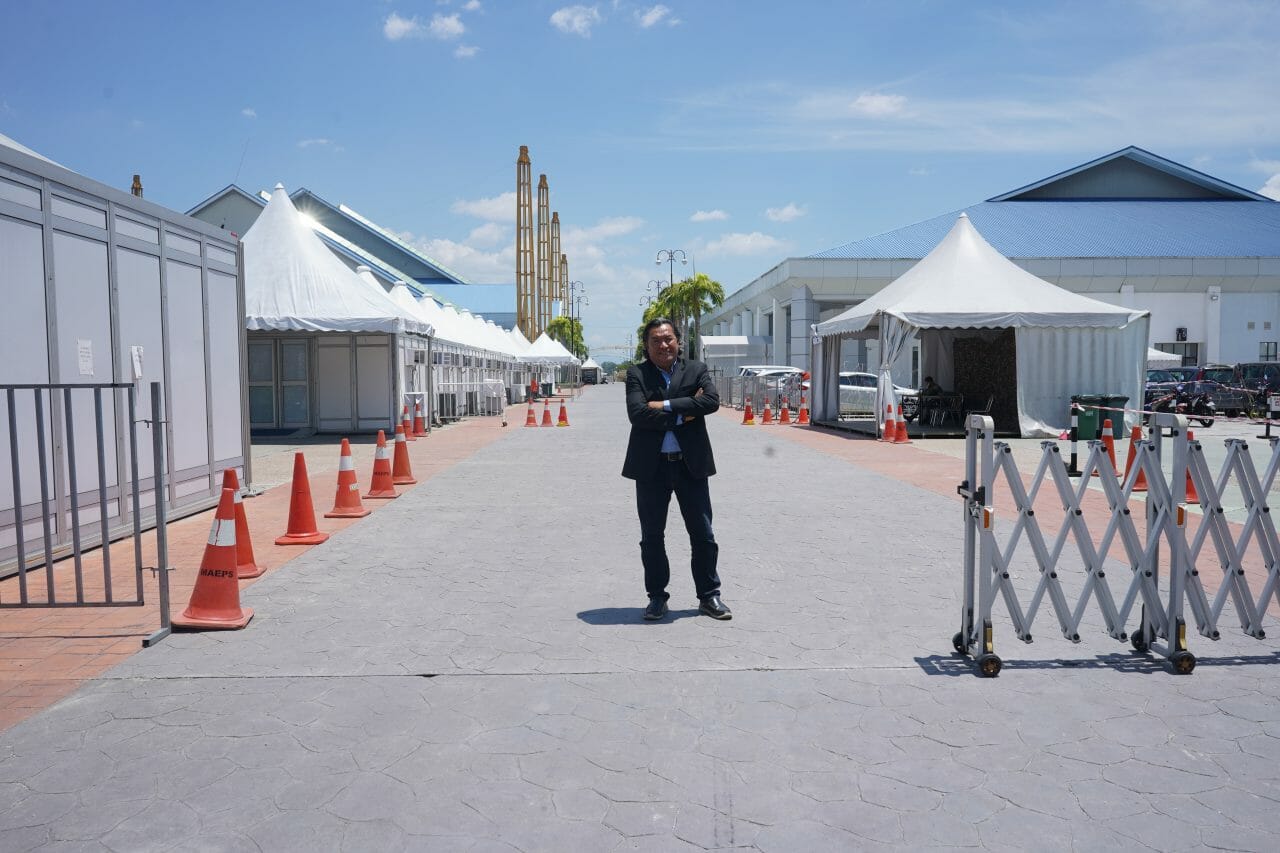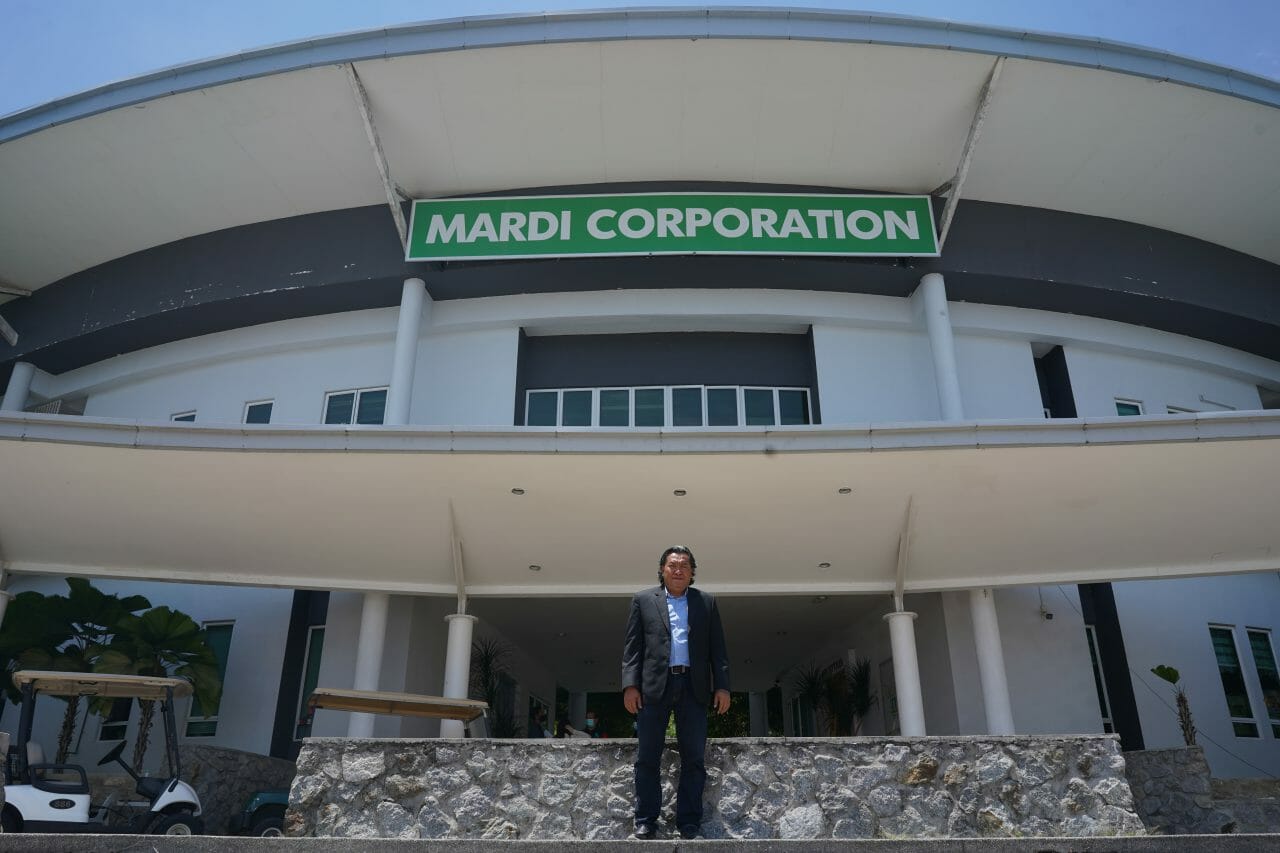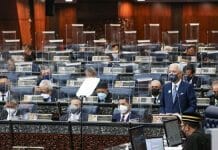In early April 2020, MAEPS (the Malaysia Agro Exposition Park Serdang) managed by MARDI Corporation Sdn. Bhd. was appointed by Putrajaya to play a very significant role in the fight against the Coronavirus that hit our shores. One year later, the largest convention centre in the country turned makeshift hospital with full capacity, is playing a pivotal role in keeping Malaysia’s health crisis under management.
When it first opened its doors, the initial 604-bed quarantine and treatment centre was split into two huge halls with 400 and 204 beds each. The then newly minted quarantine centre expected to receive low-risk patients from public hospitals in the Klang Valley, Negri Sembilan and Perak.
BusinessToday spoke to Chief Executive Officer (CEO) MARDI Corp, Zaidi Shahrim on the pivoting that had to be done from an event space that had been home to various showstopping events over the years to a quarantine centre.
“We had no knowledge in building a makeshift hospital and a quarantine centre. In fact, none of the agencies involved had any background in doing so but we had creativity and the spirit to make sure it worked,” he said.
“I was asked to open the hospital and I told my staff to treat the process the same way they would when it came to preparing an event. MAEPS was known for hosting the MAHA exposition and using the skills the team had learned over the years, we managed,” Zaidi shares.
Timing had to be impeccable as the request from Putrajaya required Zaidi and his team to set up the 1st Covid-19 Quarantine and Low Risk Treatment Centre at MAEPS (PKRC MAEPS 1.0) within four days as the cases were spiking.
The speed they worked with earned them recognition in the Malaysian Book of Records as the Fastest to Complete Interim Treatment Centre in the country. When the cases were on the decline, the centre’s role slowly relaxed however, things took a turn late last year when the cases saw a spike.
“We were called again to reactivate PKRC MAEPS 2.0 and we needed to convert the whole setting back into a hospital within days.” (MAEPS continues to support MOH under MCO 3.0 as cases are spiking to 4000 and above, the public and private hospitals have already reached full capacity with now centres like MAEP and special purpose halls are being converted for inflows)
MARDI Corp managed to complete the project by the government in three days to transform the exhibition halls into a makeshift hospital for Covid-19 patients. At the start of this year, PKRC MAEPS 2.0 was upgraded into an Integrated Hospital and started treating Covid-19 patients in categories three, four and five to be stabilised before they were sent for intensive treatment.
LONG-TERM COLLABORATIONS
Having worked along with the Government and the Health Ministry, Zaidi says future collaborations are already in plans. MARDI Corp is already looking at the various technologies and innovations from MARDI (Malaysian Agricultural Research and Development Institute), which wholly owns the Company, to be developed into possible health solutions.
“I don’t think it [Covid-19] will go away. I believe to fight Covid is to live with Covid,” he says on the possibility of the situation extending well beyond this year. However, Zaidi is more confident and optimistic now to brace any sudden spike in cases as MAEPS is more prepared to function as a full-on hospital if required by the Government.
MAEPS right now has upgraded the quarantine centre to a full pledge hospital which has an ICU unit to treat moderate and critical Covid-19 patients who are in stage 3, 4 and 5. PIVOTING AND BRACING NEW OPPORTUNITIES While the process of pivoting to new circumstances has been challenging for MARDI Corp, it was not without its silver lining.
The Company had to juggle focusing on becoming a quarantine center and at the same time focus on their core business in handling the country’s food security. As a wholly-owned subsidiary of MARDI, MARDI Corp’s main function is to commercialise MARDI’s technologies and expertise in food and agriculture, both locally and globally
Now that the pandemic forced all on-grounds events to be cancelled, Zaidi says his team has had more space to breathe and to focus on the agriculture side of the business. “We have now licensed a technology from MARDI that can produce more MD2 pineapple seedlings than conventional methods within the same time frame,” Zaidi says.
“So, basically, you can mass propagate the seedlings to meet the industry’s requirements” MARDI Corp is in talks with several international authorities including Japan and Nigeria to utilise this and other technologies and expertise from MARDI in helping them address their agriculture challenges.
“Japan is interested in contract farming and they want to invest in farming the MD2 pineapple using our technology,” he shares.
MD2 pineapples has the 2nd highest potential farming revenue after the Musang King. In addition, MARDI Corp has already signed an MoU with the Ondo State Government in Nigeria to assist them in optimising their rice production system, which will commence once travel restrictions are lifted.
“We have our own set of teams at MARDI Corp that compliment MARDI scientists to package agriculture solutions and meet the technical and commercial needs of our clients,” Zaidi added. MARDI Corp is also planning to venture into more agriculture projects this year and is particularly looking at agro-tourism.
“From managing MAEPS, we have the knowledge and experience to help state governments venture into agrotourism and so we thought why not?” Zaidi says, who believes that there is a demand among Malaysians for more picturesque sceneries across the country.
WHAT DOES THE FUTURE HOLD?
“Once the situation subsides, we are looking to upgrade the venues and facilities here at MAEPS. I think now more than ever our halls can play a bigger role. It’s important for us to turn our venue to serve different purposes to keep the business sustainable,” he says.
Zaidi also urges players in the event industry to look into innovative ways to utilise their venue halls in order to keep their business going. “We have to be more innovative and only with the use of technology, we can keep the events industry alive until the situation improves,” he concludes.


